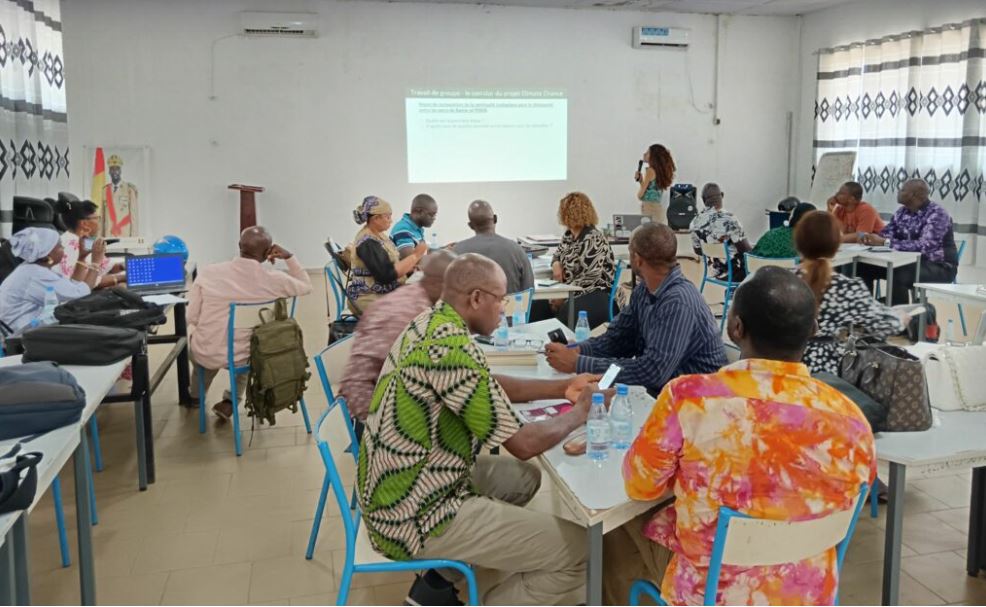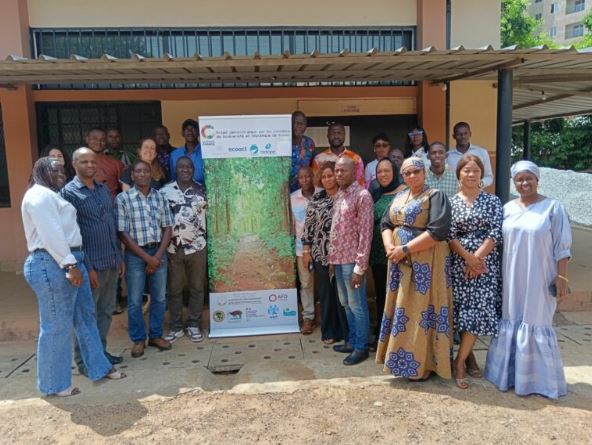
Guinea: COMBO+ training on ecological connectivity to strengthen the protection of protected areas
Climate Chance, in partnership with Biotope Guinée and the Guinean Office for Parks and Wildlife Reserves (OGPNRF), has organised a new training module: ‘Ecological connectivity: Challenges and opportunities for the protection of Guinea’s protected areas’.
Climate Chance, in partnership with Biotope Guinée and the Guinean Office for Parks and Wildlife Reserves (OGPNRF), has organised a new training module: ‘Ecological connectivity: Challenges and opportunities for the protection of Guinea’s protected areas’, as part of the COMBO+ (Conservation, Mitigation and Biodiversity Offsets) programme, an international initiative aimed at effectively integrating biodiversity into development projects, particularly in several African countries.
This module, proposed as part of the Biodiversity Corridor Project, jointly led by the Guinean Ministry of Environment and Sustainable Development (MEDD) and the Climate Chance association, with financial support from AFD, in order to strengthen the capacities of Guinean decision-makers, was held over 3 days from 6 to 8 May and brought together around fifty participants.
Key topics included the fundamental principles of ecological corridors, their integration into development projects in Guinea, strategies for effective participatory management, and their potential as a lever for socio-economic development.
The training also provided an opportunity to introduce the website of the International Coalition of Biodiversity Corridors in Africa, created by Climate Chance – a true knowledge hub featuring an interactive map and a wealth of country-specific resources.
Within the framework of the Biodiversity Corridor Project, additional initiatives are already planned for the coming months : the regular publication of quarterly analysis briefs, the dissemination of the Biodiversity Corridor newsletter, and a specialized training session on innovative financing mechanisms – including carbon and biodiversity credits – led by the consultancy firm EcoAct, an international expert in carbon certification and one of the project partners.


